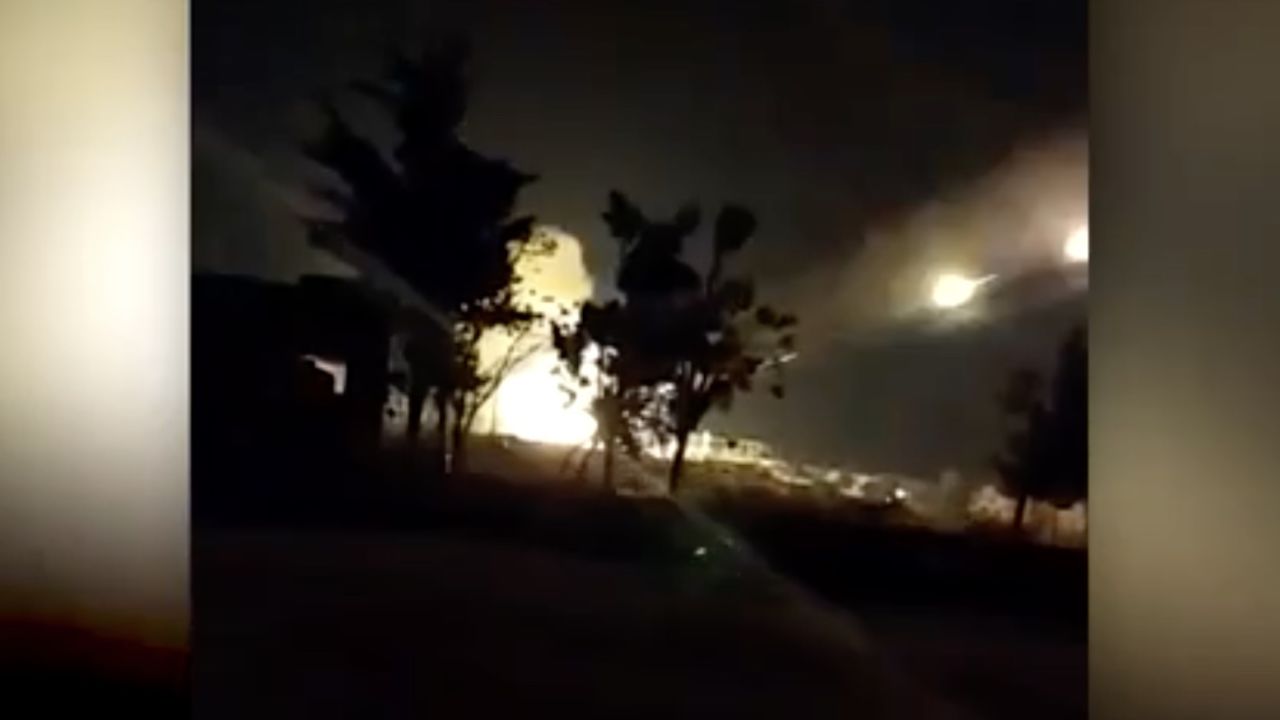Ben Wedeman - Senior International Correspondent
Ben Wedeman
Senior International Correspondent

Latest















About
Ben Wedeman is CNN’s senior international correspondent based in Rome.
Prior to this posting Wedeman was based in Rome, Italy, from where he covered the resignation of Pope Benedict XVI and the election of Pope Francis, a series of Italian crises and the migrant crisis.
Outside of Europe Wedeman has covered the civil war in Syria, the military-backed overthrow of Egyptian President Mohamed Morsi, the Gaza war of 2014, the war against ISIS in Iraq, and the failed Turkish coup d’état in July 2016.
Wedeman previously was based in Cairo, where he led the network’s coverage of the overthrow of President Hosni Mubarak. He was the first western journalist to enter Libya shortly afterwards, and spent many months covering the effort to bring down the regime of Libyan leader Moammar Gadhafi in 2011.
Prior to that he was based out of CNN’s bureau in Jerusalem, where he focused on Palestinian affairs. Wedeman was the first reporter to break the news of the release of kidnapped BBC journalist Alan Johnston in Gaza in July 2007. He was also the first western reporter to enter Gaza from Egypt during Israel’s late 2008-2009 offensive.
In the summer of 2006 Wedeman reported from south Lebanon where he was CNN’s senior reporter in Tyre during the war between Israel and Hezbollah.
Wedeman also covered a succession of wars in the Balkans, the Israeli-Palestinian peace process and subsequent Second Intifada, as well as numerous crises in Iraq, and famine and strife in Africa, including award-winning coverage of the brutal civil war in Sierra Leone.
In 2003, he reported on the US-led invasion of Iraq from Kurdish territory in the north of the country where he was one of the first journalists to cover the fall of the city of Kirkuk. He continued to follow developments in Iraq following the fall of Saddam Hussein’s regime, travelling throughout the country highlighting the myriad of difficulties that would confront coalition forces as they tried to impose order in the post-Saddam era. Wedeman was also the first western journalist to interview Iraqi prisoners tortured by American soldiers in what was to become the infamous Abu Ghraib scandal.
In 2002, he played a central role in CNN’s coverage of the Operation Defensive Shield, when Israel, retaliating for a series of bloody suicide bombings, reoccupied the West Bank.
Following the September 11, 2001 terror attacks on the United States, Wedeman covered the collapse of the Taliban in Afghanistan, and was the only Western journalist to interview, via radio and in Arabic, Al-Qaeda fighters holed up in the mountains of Tora Bora.
Shortly afterward in Karachi, Pakistan, Wedeman obtained the first interview with Marianne Pearl, the wife of kidnapped - and later executed - Wall Street Journal reporter, Daniel Pearl.
Wedeman has been with CNN since 1994, when he joined the network’s bureau in Amman, Jordan, as a fixer/producer/sound technician. In 1995, he became the Amman Bureau Chief where he was responsible not only for the network’s coverage of Jordan’s evolving relationship with Israel after their historic 1995 peace deal, but also for coverage of Iraq under Saddam Hussein. He was also the only western journalist to obtain an exclusive interview with Udai Saddam Hussein, the notorious son of the Iraqi dictator.
Wedeman’s reporting has been recognized with a plethora of awards. In 1996, he was part of the CNN team that won the Overseas Press Club and Edward R. Murrow award for Best TV interpretation or documentary on foreign affairs. Later he went on to win an Emmy and an Edward R. Murrow award for his coverage of the brutal civil war in Sierra Leone, a Murrow award for coverage of the 2006 Israel-Lebanon war, an Emmy and a Peabody award for coverage of the 2011 Egyptian revolution, a Peabody for coverage of the Syrian civil war, and a Peabody award for coverage of the Mosul offensive.
Before joining CNN, Wedeman worked as a freelance print journalist based in Amman, Jordan, covering the news in Syria, Jordan, the Palestinian territories and Sudan. He also worked in an international agricultural research center in Aleppo, Syria and as a demolition expert for a French oil prospecting company near Raqqa, Syria.
He has lived on and off in the Middle East since 1974, and earned a Bachelor’s degree in Oriental Languages and Linguistics from the University of Texas, Austin, and a Master’s degree in Middle Eastern Studies from London University’s School of Oriental and African Studies.
Wedeman is fluent in Arabic and Italian and has a working knowledge of ancient Egyptian and Hebrew. He has also studied Japanese, Russian and classical and contemporary Mongolian.



